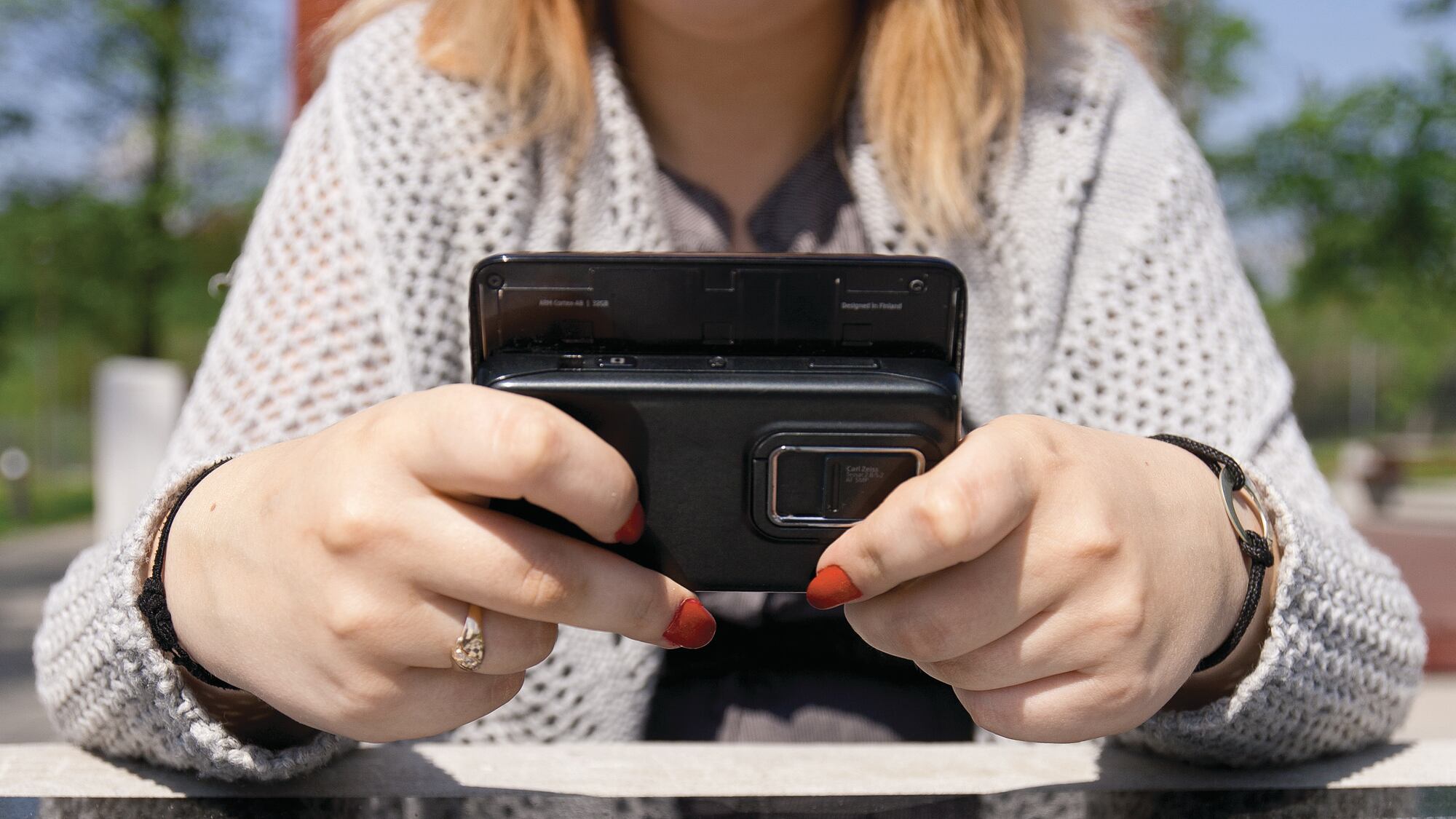By Deryn Isaac
It's 6:30 pm on a gloomy Tuesday in mid-February. My fellow riders and I sit in silence as the 4 bus crawls through downtown traffic. Our sullen faces scream exhaustion, even though the majority of us have been fixated on computer screens all day. My pocket buzzes and I instinctively pull out my phone. I open Instagram and immediately fall into the black hole of memes, dumb Tasty videos, wedding photos of my high school classmates, and paid promotions.
Swipe. Tap. Scroll. Double tap. Zoom in. Zoom out.
I'm shaken from my trance as the bus pulls up to my stop. It's now 7:50 pm, and I haven't looked up from my phone for more than an hour. I return to reality, sobered, and realize that everyone on the bus is also staring at tiny screens, completely oblivious to the world around them.
Even without phones, most people wouldn't strike up a casual conversation with their seatmate on the bus. But there was something distressing about seeing a mass of people in the same space completely transfixed by the small world inside their phone screens.
I decided to make a change. I dumped my pocket computer and bought a burner phone. Specifically, a bricklike "ZTE Cymbal Z-320," a knockoff Nokia with T9 that looks far shittier than the flip phone Kelly Rowland used to text Nelly in the "Dilemma" video.

Now, seven months later, I know this was the right decision.
I'm a 25-year-old who got her first dumb phone in seventh grade, a similar brick that I bedazzled with rhinestones and puff paint. My introduction to the smartphone world was my dad's old BlackBerry. I remember being so amazed that the phone had a full keyboard. From then on, I was hooked on the efficiency and seemingly endless possibilities that these new phones had to offer.
More disturbing than my growing fixation was the feeling that I began to rely on my iPhone as a social crutch, like a college kid who relies on Burnett's and false confidence to get through a party. Any time I felt uncomfortable, bored or anxious, I would pull out my phone to soothe my troubled mind. At the DMV? Read the news. In line at the grocery store? Check my email. I couldn't fathom tearing myself away from the blue light, and this feeling of reliance was wearing on me.
Now I pay $25 a month (!) for unlimited texting and calling with no data or internet. When I went to the MetroPCS store downtown to get it, the sales clerk looked at me like I had five heads.
"Are you sure you don't want data?" she asked. "I can make you a really great offer."
"Positive," I responded.
"OK, lady," she replied with blatant suspicion, "whatever you want."
Her tone implied that she was worried for me, worried that I couldn't maneuver through society without a device connecting me to the online world.
Since I made the switch to a brick phone, I have felt refreshingly less connected. My memory has sharpened, as I am forced to rely on Mapquest for my driving directions—which is occasionally scary and gets me very lost. I have found that calling 411 comes in handy when I'm away from my computer and need a business's phone number or address. Not to mention, the physical opening and closing of the phone creates a sensation of intentionally beginning and ending a conversation, which is kind of nice. (In case you're wondering, the phone does not have Snake.)
I'm not a total Luddite. I appreciate what technology has to offer. However, I no longer feel the intense urge to reach into my pocket and hit the unlock button out of force of habit. My general anxiety and FOMO levels have dramatically decreased because I have no way to watch Snapchat videos of my trendy acquaintances having seemingly inspiring times without me at a really average bar. I still keep in touch with my friends, colleagues and loved ones since I have Facebook, email and messaging. I just feel less hooked into the cycle of constant notification.
Nowadays when I'm on the bus, I read, people-watch or just stare out the window. It's a nice way to give my brain a break from the stimulus of the workday. Plus, you'd be pleasantly surprised how much weird, amazing stuff goes on around you once you look up.


